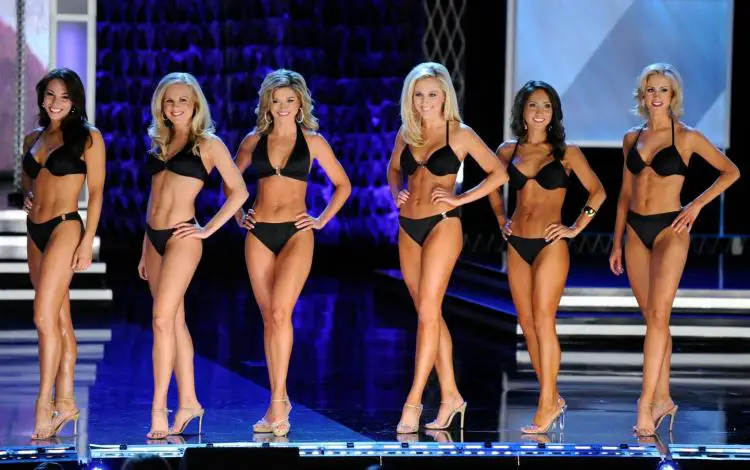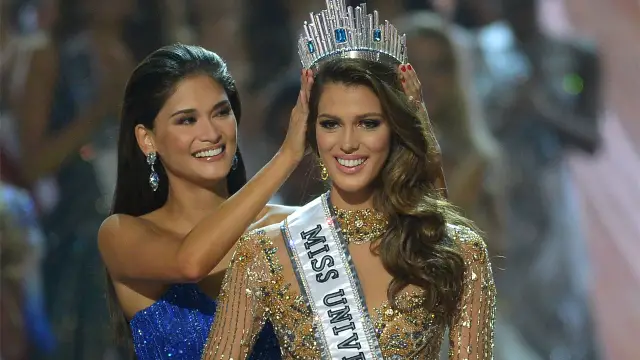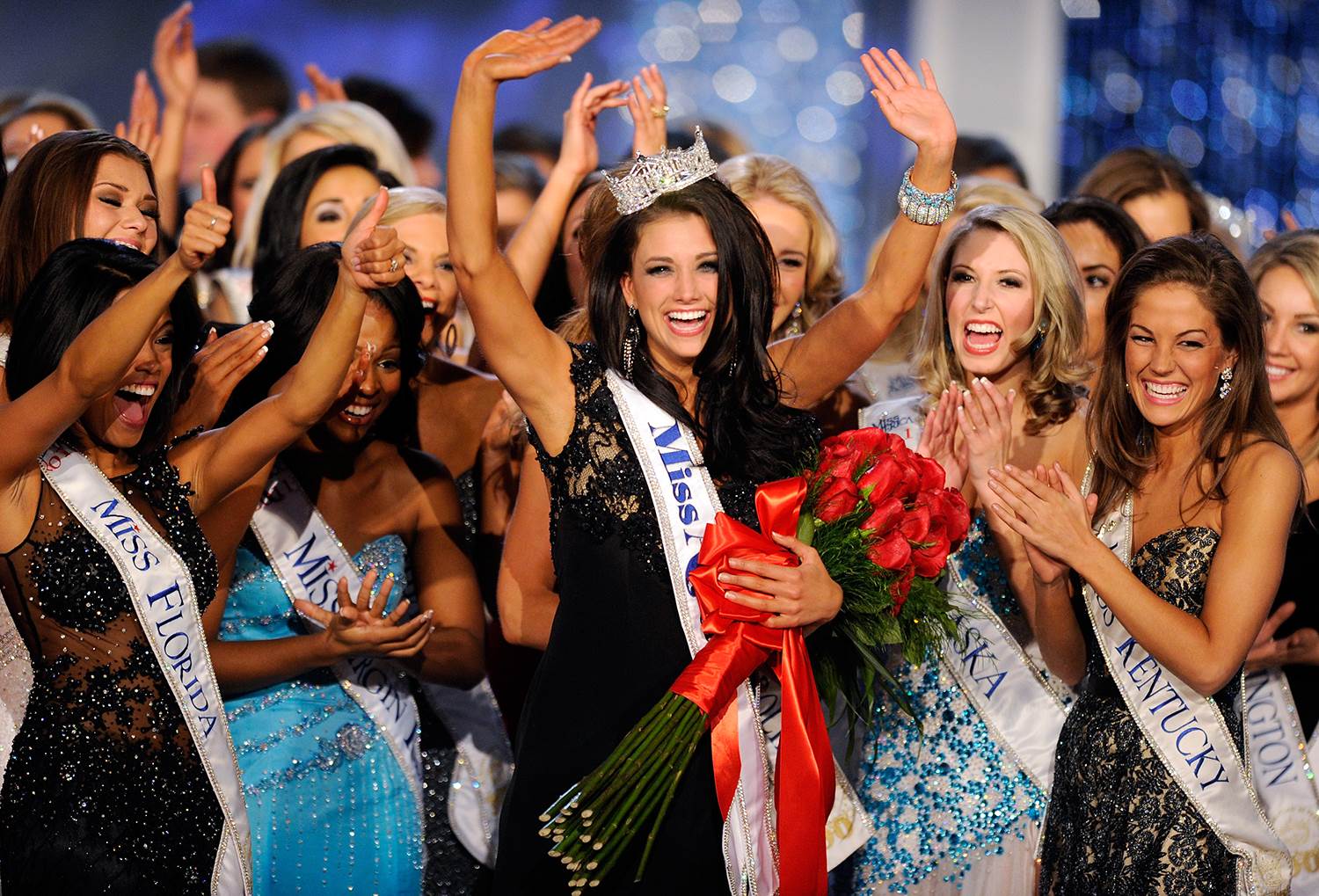Once upon a time, I was a bright-eyed teenager who loved being onstage as a dancer and scholarship pageant titleholder. I embraced the sequins, the smiles, the photoshoots and friendships while knowing I was investing in my future by earning scholarships. As a teen titleholder in the Miss America Organization, I was given the opportunity to volunteer and perform across my home state, gaining confidence with every appearance. I emerged from my year of service as a more well-rounded young woman, and deemed my experience life-changing.
Yet, my current self wouldn’t so quickly jump at the chance to be onstage again as a pageant competitor, even to earn scholarships.
Through the first half of my undergrad studies, I’ve developed a bit of cynicism, in addition to a tendency to reject most things that uphold traditional gender norms. People frequently ask me when I’ll compete again and I rarely know how to politely deflate their excitement; I’m truthful in explaining that I have some fundamental issues with the expected image a pageant queen must uphold. I think it’s a wonderful opportunity for someone, but I’m not “that girl” anymore.
Scholarship pageants are meant to be a source of empowerment for young women, to bring them pride in their personal accomplishments and inspire them to reach higher. In some respects, they do this, in others they fall short. Pageant queens are meant to represent modern, successful women, but to do so properly, pageants need three major updates.
1. Concerning Beauty Standards
They typical depiction of a pageant queen is a tall, thin woman with fluffy curls, flawless skin and a perfectly white smile, who is dressed to impress. This image isn’t based in fiction; it’s generally accurate. But, it doesn’t represent successful women at large. In a row of contestants, I would be an oddball; I’ve got chopped, bleached-blonde hair, three tattoos (and counting) and my pasty arms and legs aren’t exactly swimwear ready.

While the rest of society is celebrating an array of body types and varying overall looks, the pageant world has yet to catch up. There isn’t a rule or regulation dictating how a woman must look to be a competitor, but the homogenous appearance of contestants replicates many of the unattainable ideals women are moving away from.
Generally, healthfulness and confidence have replaced traditional beauty standards—as they should. The women seen on pageant stages are certainly confident and health-conscious; their commitment to their bodies is admirable. Yet, it would be refreshing to see a competitor without a six-pack of steel, or one with funky hair, or someone who is more relatable looks-wise to women at large.
2. Concerning the “Good Girl” Image
For each story about something amazing a queen has accomplished, there are two stories of scandal or “bad” queen behavior. Often, these disreputable tales tell of queens who are caught at parties or who had naughty photos leaked. The illusion that a queen is perfect is shattered and her title is often stripped as a result.
Maintaining a spotless reputation is challenging. It is frowned upon for queens and contestants to drink, reference their sexuality, curse, be loud or contradictory, or be anything but mannerly. A queen must maintain her demure demeanor in public and private; she is under constant scrutiny. Her social media accounts are combed through, past and current posts are surveyed for content less than newspaper-worthy.
But it’s important to remember that queens, despite the immaculate image they maintain, are human and are allowed to make mistakes and blunders like anyone else. Binding them to hiding these elements of their lives enforces archaic ideas that women have been trying to shed for decades. Queens should maintain a reputable image and a wholesome persona, but they also should be able to do whatever they damn well please without being scorned for it.

Lingering around the crown is the ancient idea that a woman must be polite, virginal, delicate and donning a well-tailored dress and a smile at all times to be considered a “good girl.” A woman who has a glass of wine at girls’ night and posts it on Instagram, or one who has a sex life, can still be a “good” and successful queen. Contrary ideas should be as out of style as puffy-sleeved ball gowns.
3. Concerning the Definition of “Woman”
Even with the progress that has been made in LGBTQ rights recently, the pageant scene is still playing catch-up. Eligibility rules often require contestants to be sexually female or fail to define womanhood at all. If the goal of the scholarship organizations is to empower the modern woman, they need to update their definition of “woman.” The term needs to be all-inclusive, not applicable to only a select group who are assigned it based on someone else’s standards.
While scholarship pageants remain unprecedented in encouraging young women to meet their academic and educational aspirations by providing them the scholarship opportunities to do so, they lack in modernizing the concept of a woman. The women who hold titles often seem flawless, their appearance and achievements topping the most elite standards.
Though they are meant to inspire other women to reach their goals and set an example that encourages the belief that anything is possible, their surreal aura is almost disheartening and discouraging because of its seeming unattainability. Even as a former titleholder, I am intimidated by the expectations and pressures that come with the crown. With contestants who incite active changes, the scope of pageantry will begin to look more diverse, inclusive and celebratory of women’s successes in their own terms rather than the archaic terms of femininity imposed upon them.

















[…] Why Pageants are Problematic – Study Breaks […]